'I can't die yet, I'm only 29' says bowel cancer survivor
- Published
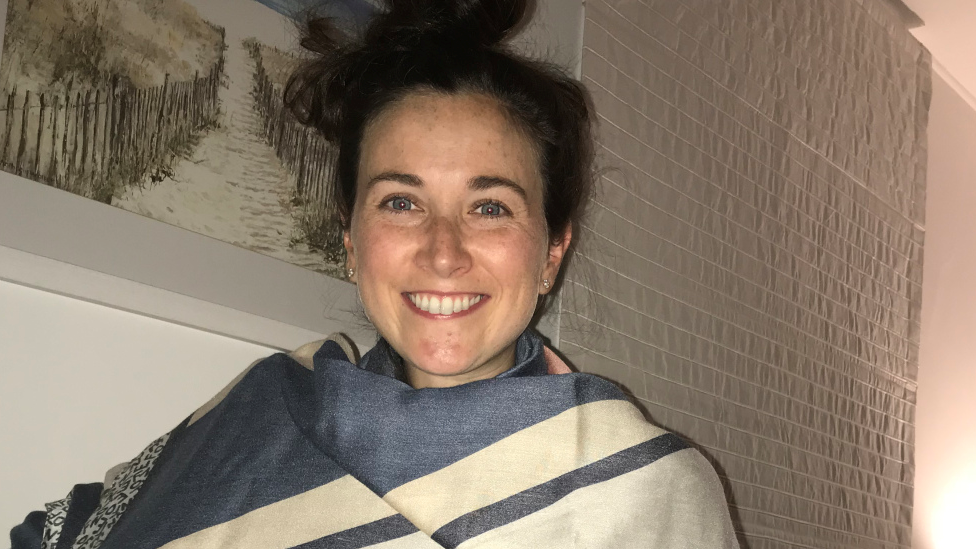
Olivia is a primary school teacher who lives in St Andrews with husband Sam
Despite two years of severe stomach pain, bowel irritation and blood in her stools, Olivia Rowlands never imagined she would be diagnosed with bowel cancer.
Olivia says she thought to herself: "I can't die yet. I'm only 29."
Every year in Scotland about 3,700 people are diagnosed with bowel cancer but only 6% are under the age of 50 and just a couple of dozen are under 30.
"You definitely think bowel cancer is an older person's disease and you often think it's just a male disease as well and it is not true," Olivia says.
The primary school teacher, from St Andrews in Fife, was finally diagnosed with the disease in December last year, despite having had symptoms for two years.
She shared her story on BBC Scotland's Timeline programme.
Olivia says that doctors mistook her pain for IBS or a food intolerance but when she lost 2st (13kg) in weight and noticed blood in her stool she knew something was not right.
She says: "I couldn't do anything, I couldn't travel, I couldn't go to work, I couldn't see friends."
'A relief'
Then at a doctors appointment in November 2017 a GP sent her to Ninewells Hospital in Dundee, and a month later she was diagnosed.
She says: "When I was originally diagnosed I actually felt a weird sort of relief because nobody had listened to me for so long and they kept saying it was food intolerances or period pains or IBS.
"I just felt, finally, we know what it is and we can fix it, because I was starting to think: 'Am I going to have to live like this forever?'
"I thought: 'Okay, we know what it is, what can we do to get better?'."
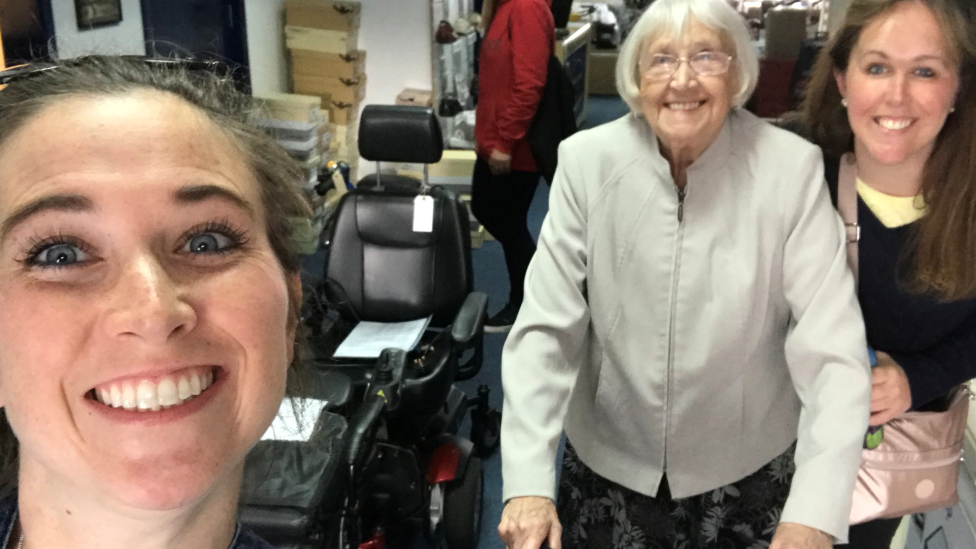
Olivia said she was relieved to finally get a diagnosis after two years of pain
Being diagnosed was the first part of her journey, telling her family was the second.
She says: "It is like in the movies and I think my first thought was, 'how do I tell my mum?', because mum and I are really close and I didn't know how to tell her.
"My parents and my brother all live in Dubai, so I didn't feel that I could tell them over the phone.
"I phoned them up and said they [the doctors] had found something but not what they had found."
A few days later Olivia's mum arrived to be with her and she told her the news.
Through it all, her husband Sam has remained strong, Olivia says.
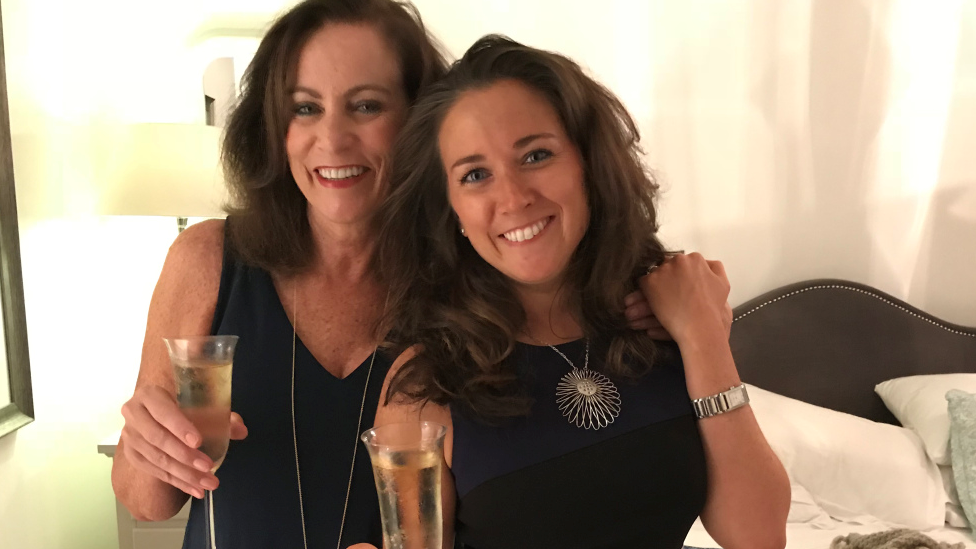
Olivia said she was most worried about telling her mum the news
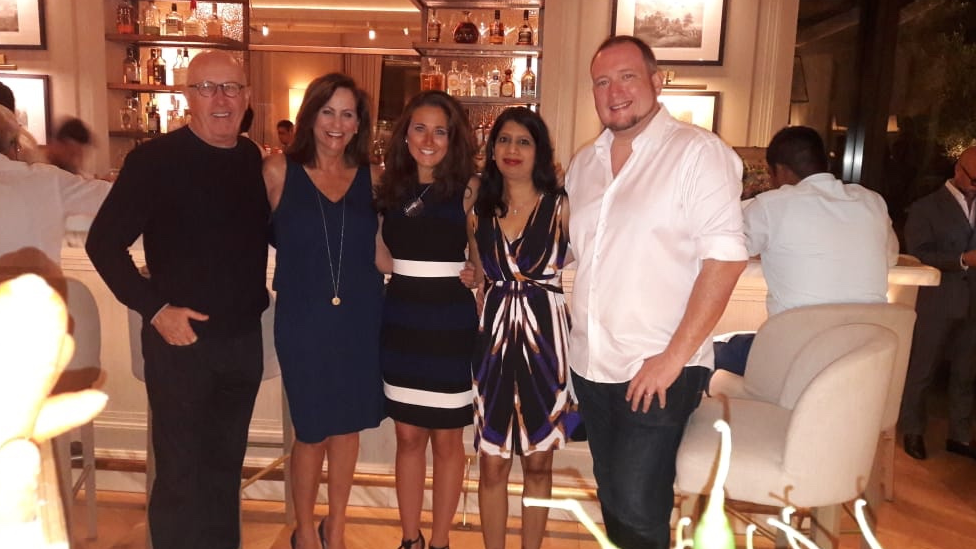
Olivia didn't want to tell her family in Dubai the news over the phone
"My husband was amazing," she says.
"He was great in front of me but I know as soon as he walked out of that room after me being told he fell apart.
"But he was always really strong in front of me, which is what I needed."
She says: "At no point did I ever think that I wasn't going to make it and I don't know why I thought that because I think when people often think of cancer they think of death.
"But I didn't, because I just thought: 'I can't die, yet. I'm only 29'.
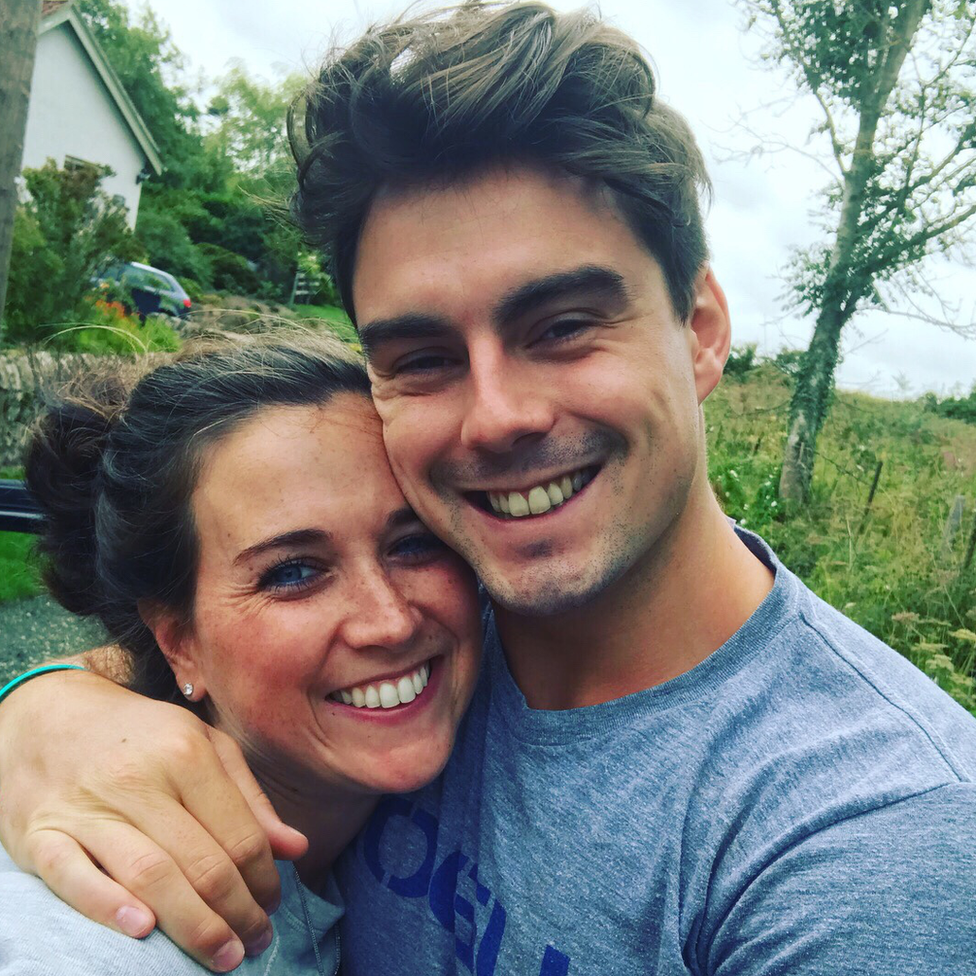
Olivia said her husband Sam was amazing and strong during her diagnosis

"So I think my initial thought was just how do I tell people and how do I get better?" she says.
After telling her family, Olivia had to prepare for surgery and treatment.
Days after her diagnosis she had the 7cm (3in) tumour removed and was told that the follow-up treatment would stop her from ever carrying a baby.
She says: "I was told in December that I won't be able to carry our baby anymore because I had to have 25 sessions of radiotherapy which 'zapped' my uterus."
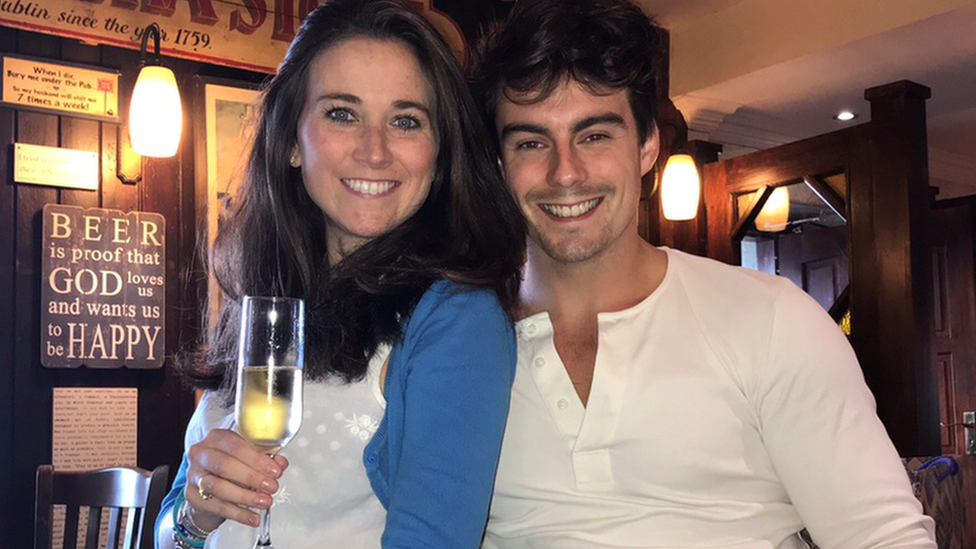
Olivia and husband Sam are positive about their future
She adds: "We were fortunate enough to freeze four embryos, so in the future, we're going to look at surrogacy.
"So that was kind of a nice distraction while we were going through cancer treatment, we were able to start looking at our future family as well, just a bit of a different way than we originally thought we would have a baby.
"We just need to find a really good babysitter- for nine months."
Now in recovery, Olivia is hopeful for a pain-free future and that her story will raise awareness that bowel cancer has no age boundaries.